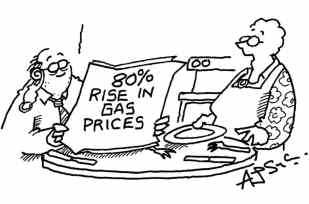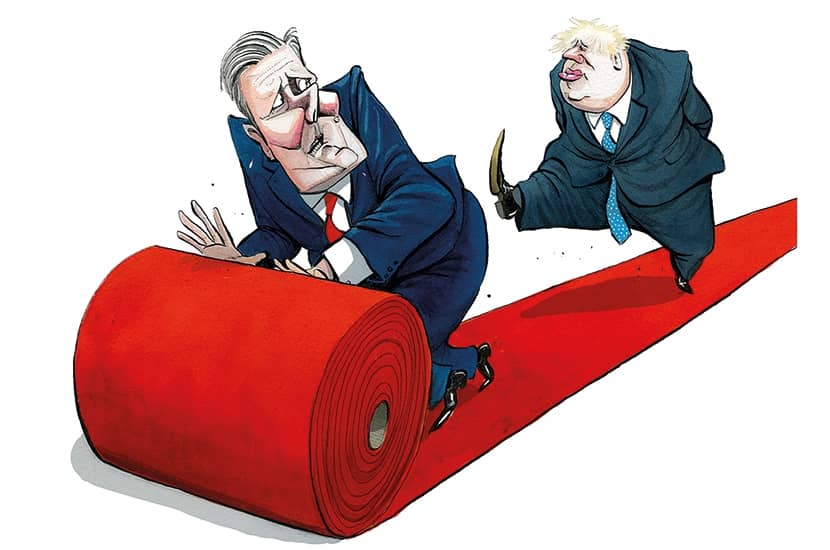Next week, when Keir Starmer appears on stage at Labour conference in Brighton, it will be the first time he has spoken to a packed crowd of party members since he became leader. Covid restrictions meant his inaugural leader’s speech at party conference in September 2020 was delivered to an empty hall and shared via a video link. It was a blessing in disguise. Starmer had an excuse for failing to make much of an impression. He was also able to deliver criticism of the Jeremy Corbyn era without fear of boos from the delegates.
His audience will be less forgiving now. Over the past year, his position as Labour leader has weakened. Disappointing local election results, a botched shadow cabinet reshuffle and Starmer’s sliding popularity in the polls have led to speculation about his ability to lead the party to power. The hope was that Starmer would be more moderate than Corbyn and therefore more electable. Yet few believe he is on course for Downing Street. Is Starmer too robotic to appeal to the public? And if he can get the attention of voters, does he have anything to say to them?
It’s not uncommon to hear members of the shadow cabinet say that it will take two more elections for Labour to get into government. A party shooting for victory in 2029 is unlikely to have high morale. The left flank of the party are on the offensive — crying betrayal over Starmer’s refusal to restore the whip to Corbyn following his suspension last year. Starmer’s deputy, Angela Rayner, is being talked up as a leadership rival.
Even Starmer’s own supporters are strained in their praise. Ask a Labour MP how he is doing and you will often hear ‘he is doing his best’, ‘it’s a tough job’, or — the most damning — ‘we’ll just have to see’. ‘He’s gone from being a potential prime minister to a lame duck leader,’ says one MP.

Inside Starmer’s office there is optimism that he can use the conference to reset. Aides hope it will be a ‘turning the page’ moment. While party conferences rarely change public opinion overnight, they can offer political leaders a chance to set out their vision to a captive audience.
The leader’s speech is being finalised, conference motions to professionalise the party are being planned, and a dissertation-length essay to set out the principles behind Starmer’s vision is being published this week. ‘We want to move on: not just from navel-gazing, but also from talking about how we need to stop navel-gazing,’ says a party figure.
For all the talk of moving beyond party infighting, Starmer isn’t shying away from conflict. This weekend he will attempt to push through a range of measures set to rile the party’s left. The most controversial is his plan to reverse the rule changes made under Ed Miliband regarding how the Labour party leader is picked. This will dismantle the system that allowed left-wing activists (and some Tory saboteurs) to join Labour for £3 in 2015 and vote in Corbyn as leader. Starmer’s allies argue that it’s dangerous to leave the party open to infiltration.
Inside Starmer’s office there is optimism that he can use the party conference to reset
The plan has, unsurprisingly, appalled MPs on the left of the party and several unions who suggest it is an affront to democracy. Starmer’s team are braced for more difficult scenes on the conference floor as they put recommendations on tackling anti-Semitism to votes. Some activists think that Starmer’s favoured plan, recommended by the Equality and Human Rights Commission, could be used as a pretext to purge more members of the party’s left. A counterattack is under way to thwart the selection of Starmer’s preferred pick for general secretary, David Evans.
So conflict is inevitable. But is it necessary? Starmer’s supporters say the fights are worth having, even if not every single one is won. Internal polling has suggested that voters see Starmer as a break from Corbynism, but they are not yet sure if Labour has changed. Starmer hopes that by picking these battles he will show the party is prepared to change — the drama could echo Neil Kinnock’s confrontation of Militant in 1985. The risk to this strategy, of course, is that Labour wars would give more attention to the most radical activists.
Should Starmer win the battle for his party, he still needs something to say. He can be clear about what he opposes, but what is he for? Shadow cabinet members complain that there is no flagship policy or overarching theme to rally around. Boris Johnson’s ‘levelling up’ agenda — mocked as meaningless by many Tories — is viewed with envy by Labour. ‘It’s the new “take back control” — we underestimate it at our risk,’ says one MP.
It’s telling how little Tories talk about Starmer these days. His name rarely comes up in government discussions about strategy or debates among Conservative MPs. ‘I’ve just no idea what’s going on with Labour,’ says one minister.
The pre-conference essay — titled ‘The road ahead’ — is supposed to define Starmerism. At 12,000 words, it doesn’t exactly scream ‘mass market’, but the hope is that it will provide a framework for Starmer as he makes more interventions in the lead-up to the next general election. One person privy to the essay says it will advocate a return to ‘meat and potatoes’ political issues that resonate across the country. Starmer will try to shed the idea that the Labour party is anti-business and paint the Tories as the real enemies of business and jobs.
There will also be attempts to show what kind of a person Starmer is in his leader’s speech. He has been described as dull and unable to connect with the public — a contrast to larger-than-life Johnson. Starmer’s allies point to his legal career where he had to adopt a professional, neutral demeanour in the workplace. But in recent appearances on Piers Morgan’s Life Stories and Desert Island Discs he has been more comfortable about letting his guard down. ‘It’s not natural to him to talk about himself. But he’s going to,’ says an ally.
The conference offers Starmer a chance to inject some energy back into his leadership. He needs to take it. Otherwise, his MPs may conclude that their leader has missed his chance and is now set to be defined by events out of his control.







Comments